Glossy and matte surface materials have distinct qualities. Here’s what to note when choosing surface materials for different parts of your home.
Glossy surfaces can boost the appearance of space
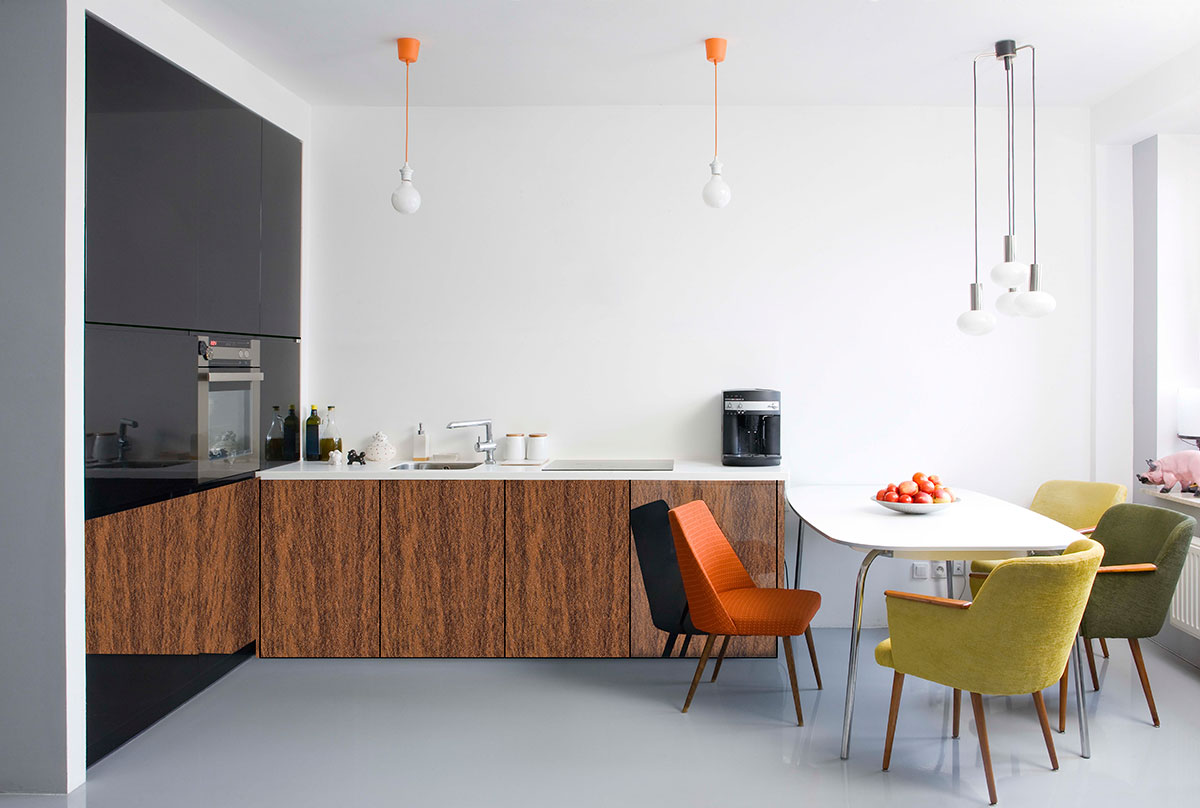
Image credit: Greenlam
Much like mirrors, the reflective power of high sheen surfaces can project a brighter and more spacious living space. To double the visual expanse of your space, go for high gloss laminates for your custom-built cabinetry, glossy tiles or wallpaper for wall coverings, and semi-glossy flooring such as homogeneous tiles.
Glossy surfaces can be pricier
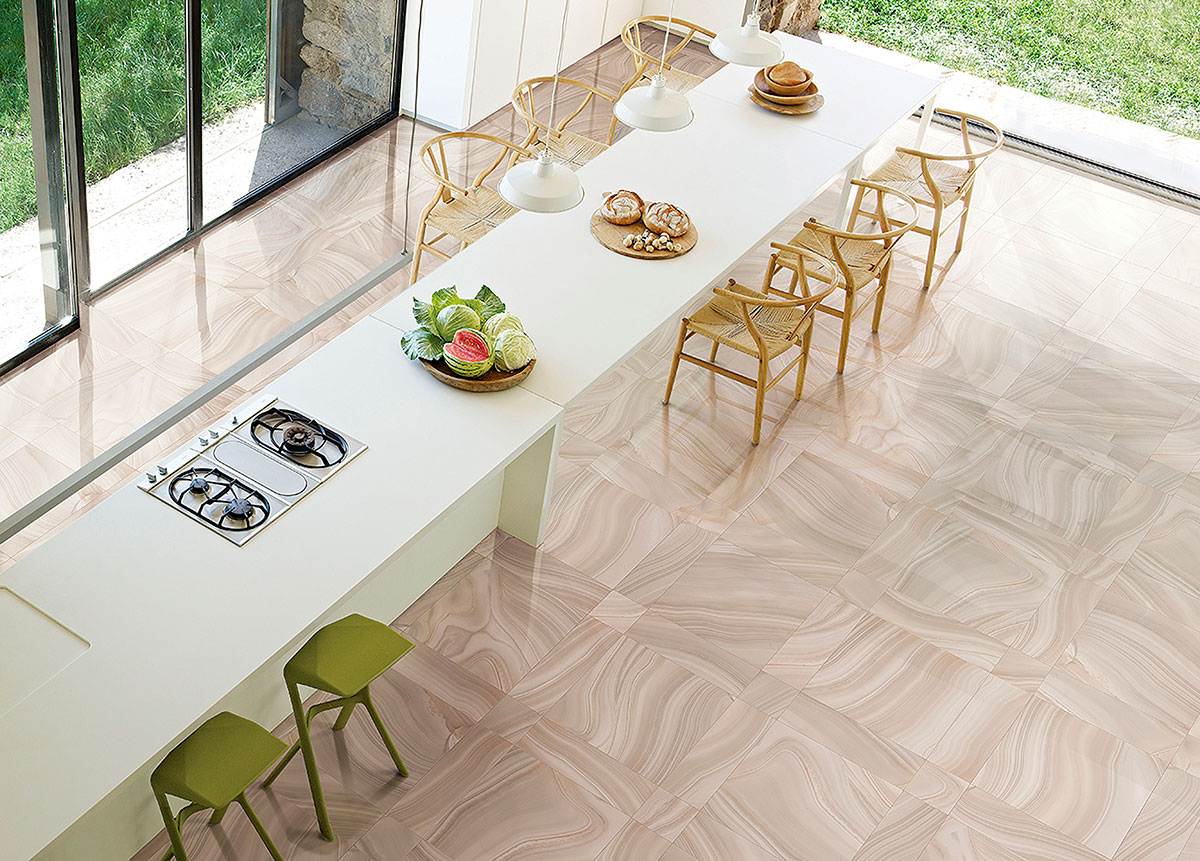
Image credit: Hafary
Usually, the pricing of gloss laminates varies, depending on its gloss level. The higher the gloss, the higher the price. For tile flooring however, both matte and gloss finishes are pretty comparable.
Matte is the safer option for flooring
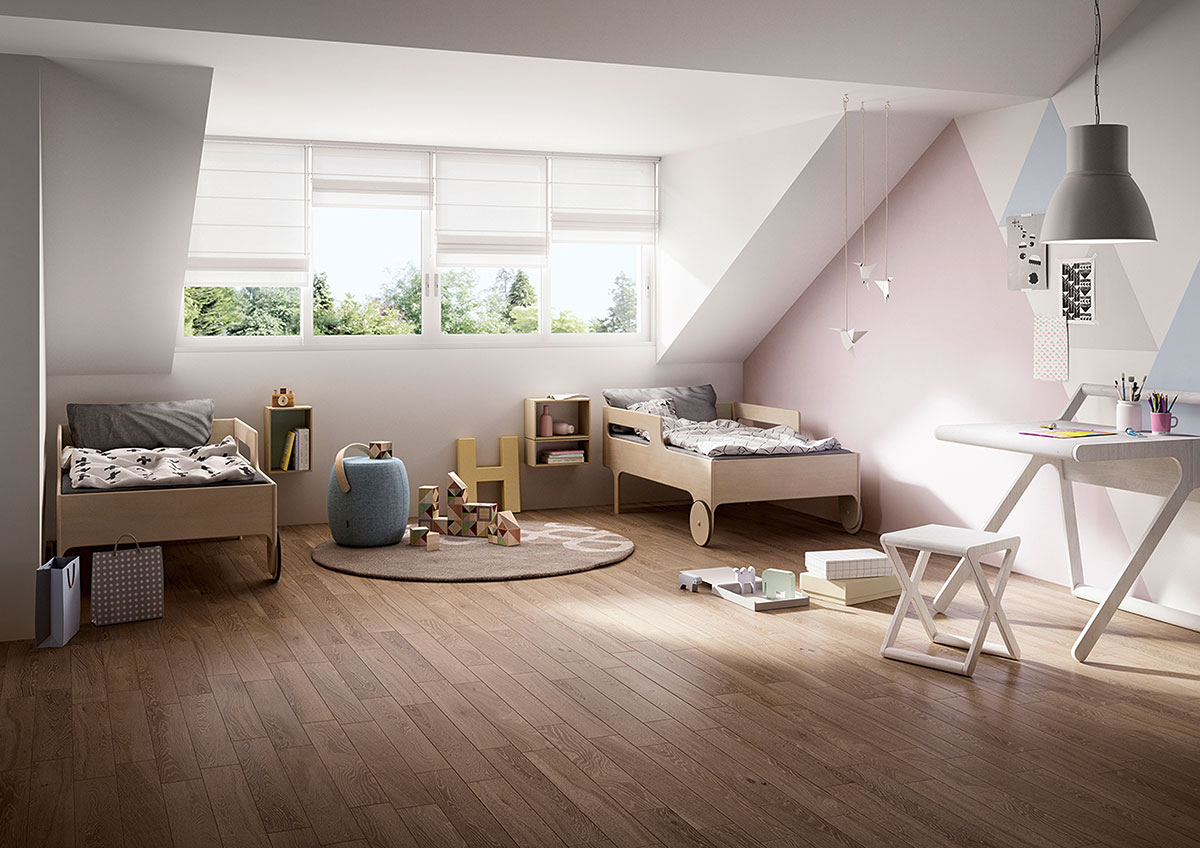
Image credit: Hafary
Safety should always be your first priority when it comes to flooring. To keep accidents at bay, your best bet is definitely matte flooring with a non-slip feature. These can refer to tiles, vinyl flooring or even concrete. Furthermore, matte tiles can be used for outdoor spaces as well as they are less slippery when wet. The traction can also be increased when a matte, textured surface is chosen. Homeowners with pets might also prefer the matte flooring option as glossy tiles could be susceptible to scratches.
Matte surfaces can emulate a look close to real wood
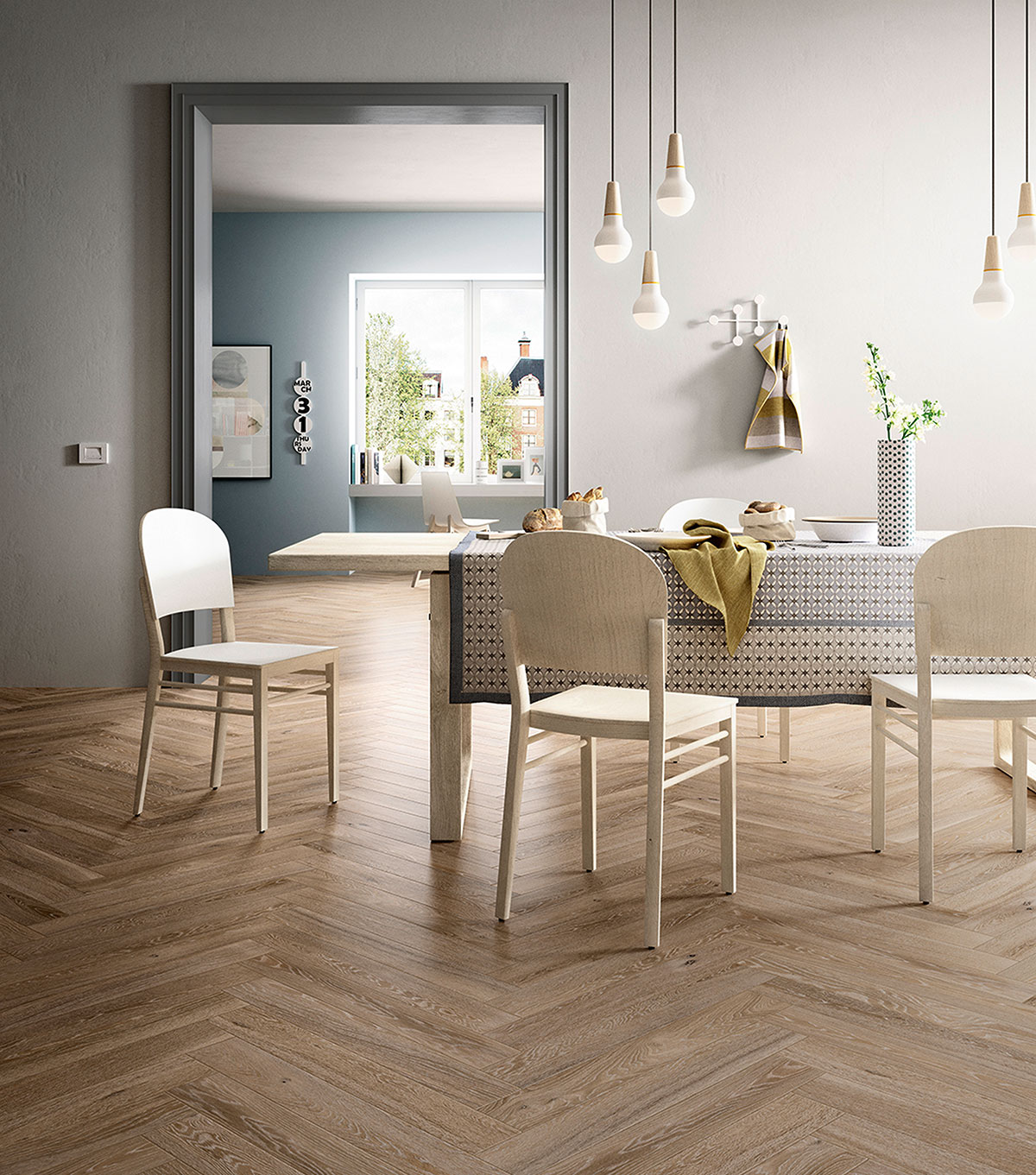
Image credit: Hafary
As far as matte surfaces go, they can sport realistic appearances to the materials they are supposed to take after. Woodgrain and concrete-like surfaces are easily emulated with matte materials. In fact, these days, woodgrained-effect surfaces look close to realy wood veneer thanks to their sheen-less and rustic appeal.
Matte surfaces can be used in most applications
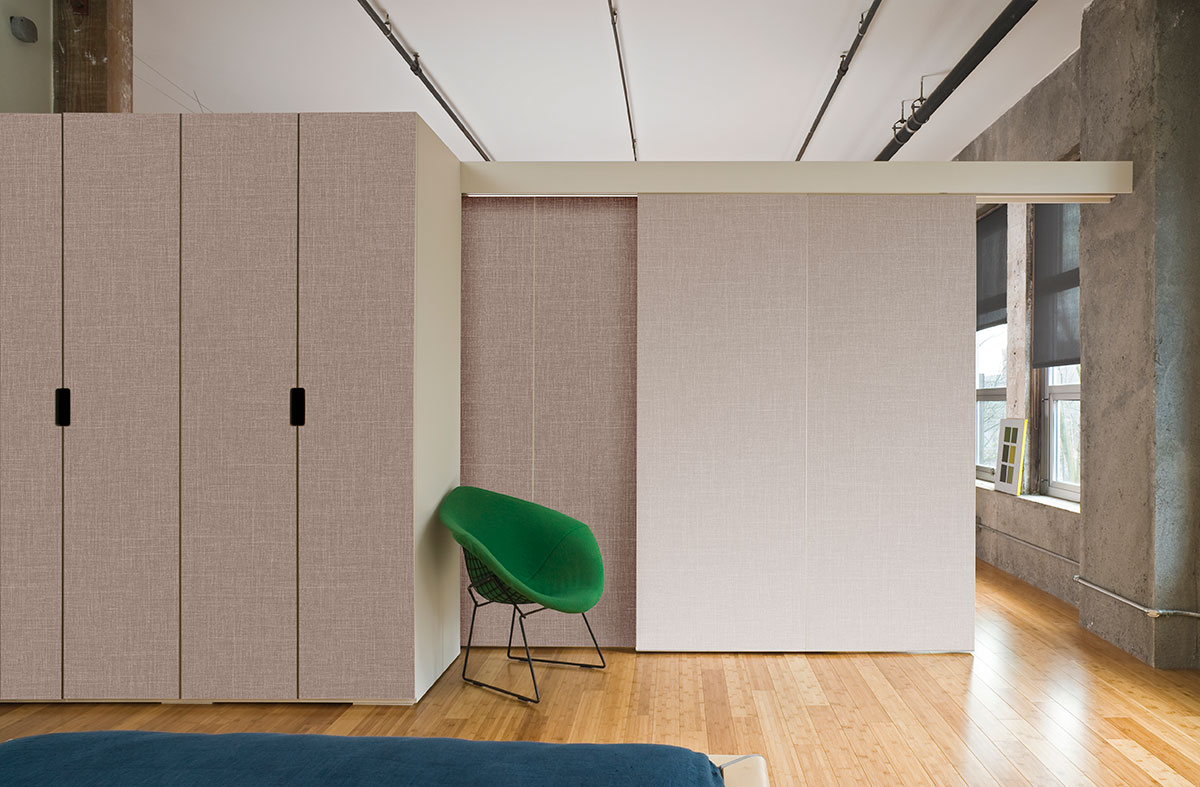
Image credit: Greenlam
If you think that both glossy and matte surfaces can be utilised for most interior applications, think again. The hardwearing nature of matte surfaces allows it to be used in vertical and horizontal applications while the more vulnerable glossy finish is only suited for vertical applications. Vertical applications comprise doors, walls, feature walls and cabinets. Horizontal applications refer to heavy-duty uses like countertops and flooring.
Matte surfaces can hide more wear
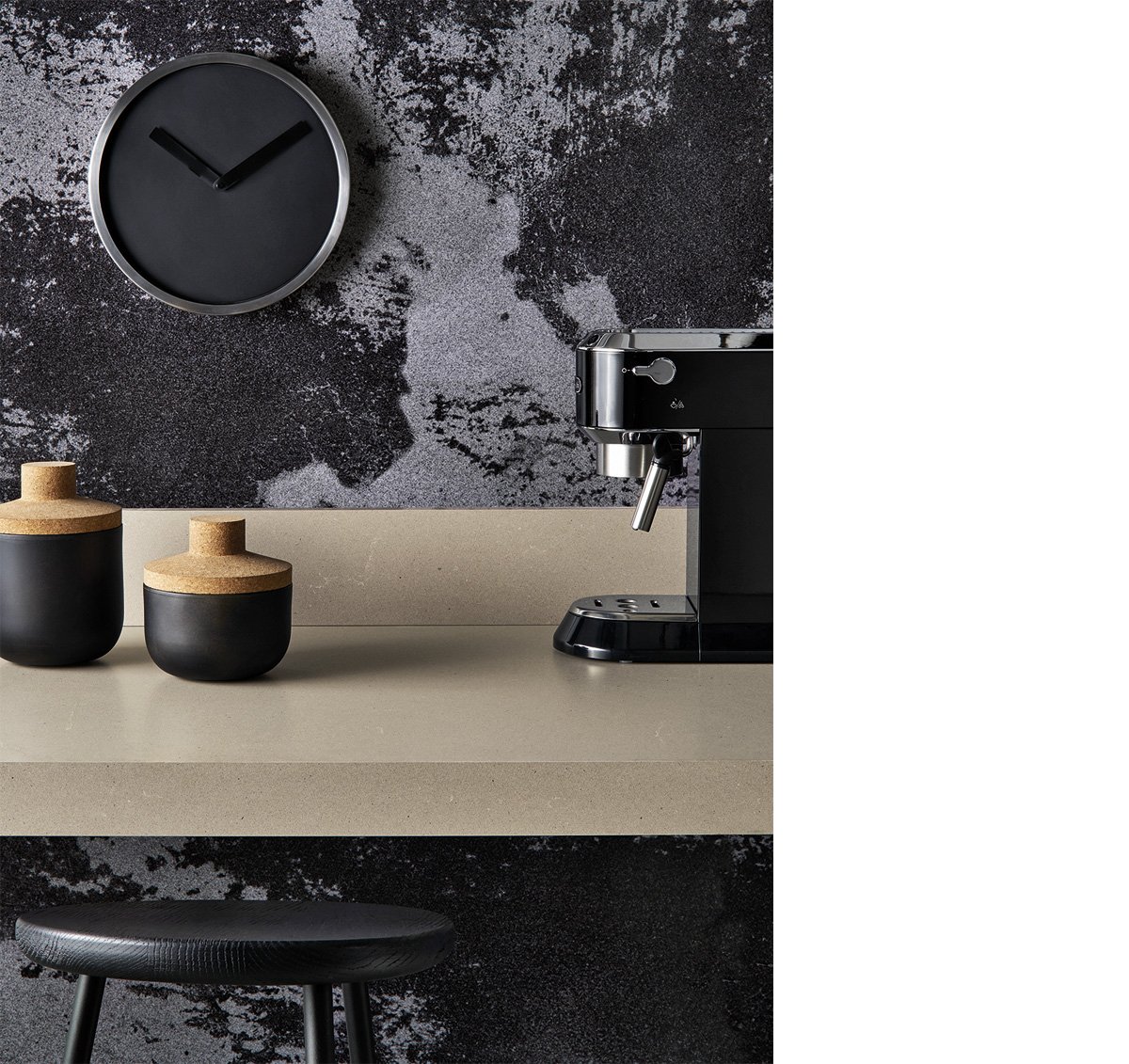
Image credit: Caesarstone
It’s not exactly hard to guess which finish is more enduring. The higher the gloss level, the more susceptible it is to scratches and scuffs. Basically, any wear will dull down the heavily utilised areas. In general, textured surfaces and light colours have a better scuff and scratch resistance than smooth surfaces and dark colours. For this reason, glossy laminates and dark plain colours are not recommended for heavy-duty working surfaces. On the other hand, smooth and lightly textured surfaces are easier to clean than deeply textured finishes.
This was adapted from an article originally written by Disa Tan in the May issue of SquareRooms.



